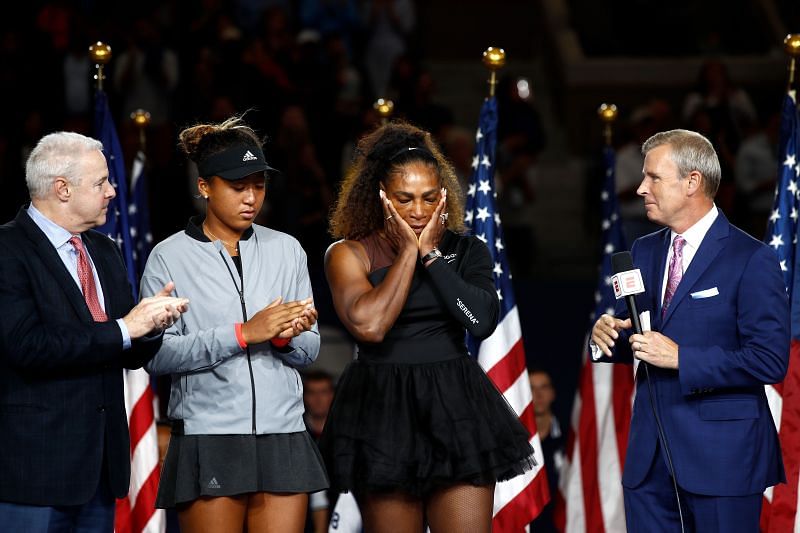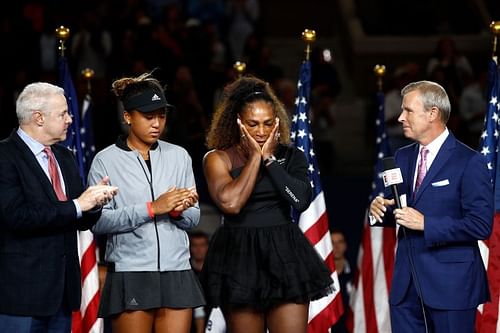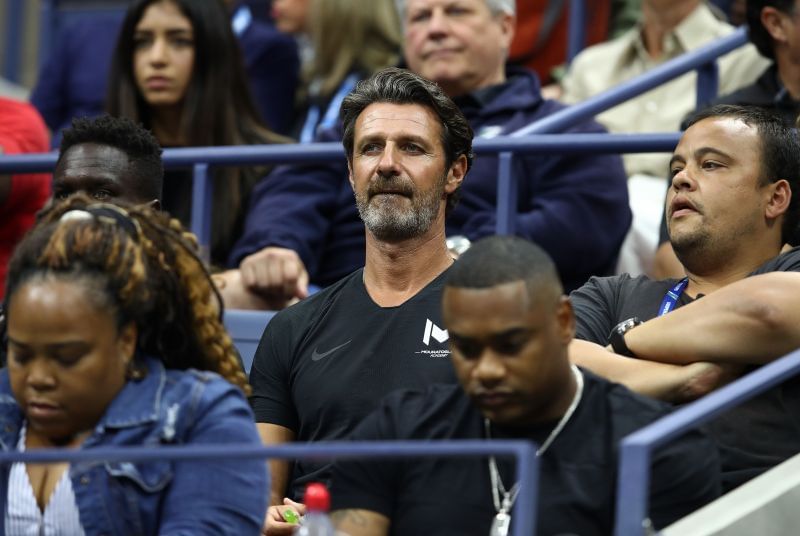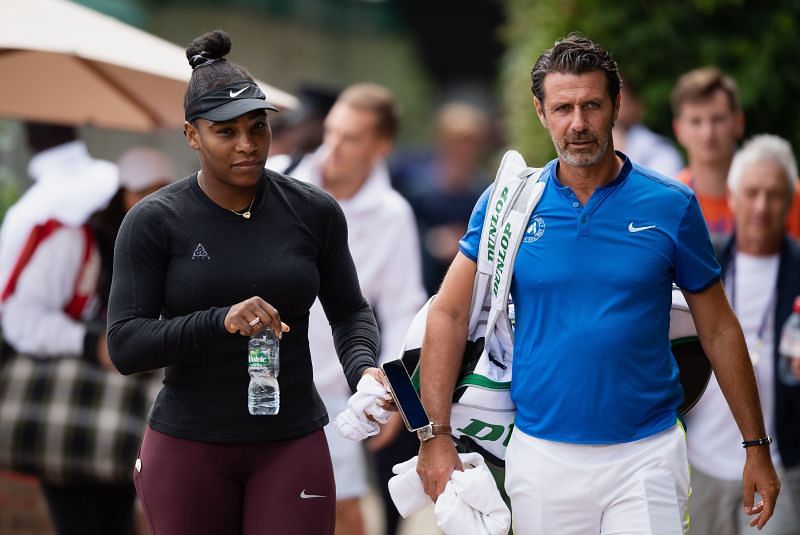
Mouratoglou claims Serena Williams is always targeted because of her gender & race, says Ramos "screwed up" during USO 2018 final

Former pros Chanda Rubin and Zina Garrison recently released the sixth episode of their podcast 'The Goat: Serena', discussing the revolutionary career of Serena Williams. The episode, called 'The Controversy Gene', also featured the 23-time Slam champion's long-time coach Patrick Mouratoglou.
Mouratoglou joined Williams' camp back in 2012, and since then has led her to 10 Grand Slam titles. Apart from being Williams' full-time coach, the Frenchman also provides guidance and training to Stefanos Tsitsipas and Coco Gauff.
During the podcast, Patrick Mouratoglou delved into the 2018 US Open final which pitted a history-chasing Serena Williams against the upcoming talent Naomi Osaka.
After Williams lost the first set, Mouratoglou infamously tried giving her some words of motivation while sitting in her player box. The chair umpire Carlos Ramos promptly gave Williams a coaching warning, which visibly upset the American.
After subsequently being given a point penalty for racket abuse (the coaching warning constituted the first offense and the racket smash the second one), Serena Williams lost her temper. She unloaded on Ramos with some choice words, and even called him a "thief" for taking a point away from her.
That in turn led Ramos to hand Williams a game penalty, as he deemed her verbal abuse to be the third offense of the match.
But while speaking about the incident on the podcast, Patrick Mouratoglou claimed that Carlos Ramos was "responsible" for the unfortunate turn of events.
"For me, he's responsible for what happened," Mouratoglou said. "I'm going to say that as much as possible. I think he made an incredible mistake during the final and he screwed up completely. When a player makes a mistake he is punished so when a chair umpire makes a mistake he should also be punished."
The Frenchman argued that coaching is a common practice during tour-level matches, and that players don't usually get penalized to that extent. He even suggested that Serena Williams is targeted more often because of her gender and race.
"There are people who take 10-minute toilet breaks at every match and nothing happens to them," Mouratoglou said. "Most of the coaches coach at every match. The chair umpire asks the player to tell the coach to slow down and that it's getting too much."
"This is what happens most of the time," he added. "So why Serena all the time? Because she's a woman, probably because of her color. I think this chair umpire didn't like that a woman could stick up to him like that and that's why he went too far."

Patrick Mouratoglou went on to admit that he did indeed try to coach Serena Williams during the US Open final, before asserting that he doesn't regret it.
"I did it that day because I felt it was a drama and I could feel she was lost," Mouratoglou said. "I don't regret it at all. I just did what a majority of coaches do all year long."
"I think the relationship Serena Williams and I have built is very strong" - Patrick Mouratoglou

Patrick Mouratoglou and Serena Williams have one of the longest-running player-coach relationships on tour. When asked to reflect upon his time with Williams and whether he is going to be her 'coach for life', Mouratoglou said that the nine-year-long coaching partnership has helped the two become good friends.
He went on to reveal that while the 39-year-old initially blamed him for what happened in the 2018 US Open final, she later softened her stance. According to the Frenchman, Serena Williams eventually decided to stand by him because she believed he had honest intentions.
"I think we are extremely good friends, we've known each other for nine years," Mouratoglou said. "When you're coaching someone you spend so much time with them. You go through a lot of different moments, you live those moments together."
"When this happened, she felt I was responsible for what happened during the final," he added. "She said, 'Why did you do that? You never do that. What happened to you?' But (then) she said, 'Don't worry, I know there is not one bone of dishonesty in your body, so I'm with you 100%.' So I think the relationship we built is very strong."